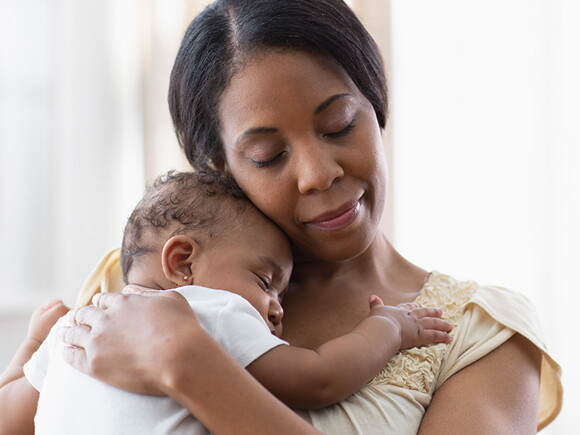Parenting: Expectations vs Reality

There's only one job that cannot be learnt by reading books or watching videos, Parenting.
For every couple, becoming parents is like stepping into a brave new world: it’s uncharted territory and expectations rarely match reality. No number of books or advice will ever truly prepare you for the experience of being a parent. This is because it’s unique for everyone. There are some common expectations that many parents have about their children and about the parenting experience. Let’s take a look at these to understand if they’re on the mark or if reality is another matter entirely.
Babies on social media vs your own child
We’ve all seen those adorable baby videos on social media or social media forwards of genius children on the piano. Children are adorable, there’s no doubt about that. But it’s important not to get carried away. Children are a full-time commitment and the kids on social media and adverts are equally messy at home. Before you decide to have children, you need to be sure that your life and your career are compatible with taking care of your child. If you’re in a position where you can do this, you’ll find that raising a child is incredibly rewarding. And you’ll have your own cute photos to post. Few couples don’t want to become parents but pressure from their own parents, friends and society can sometimes be overbearing, but before you decide remember it’s a commitment for a long time and in some extreme cases even out last marriages.
Too much time or not enough? Work life balance vs dedicating your time to your child
All couples go into parenting understanding that it takes time and dedication. However, and this holds especially true for working couples, you might have underestimated just how much time is needed to take care of your child, and just as importantly, when. Looking after a new-born is a full-time job and it’s a great idea to make use of maternity and paternity leave to their fullest extent when possible. Children’s needs and the timing of those needs can vary drastically. If you’re lucky to have a new-born that sleeps through the night, your daily schedule might not be irreparably disrupted.
But most likely, you will have trouble sleeping and even during the daytime, it’ll be hard to schedule time for yourself. However, this is something that you will need to do to ensure your health, your sanity, and your child’s safety. As your child grows older and becomes more independent, you’ll find that you have more time to yourself, especially during school hours. However, don’t expect things to go back to how they were before your child was born. Unplanned late nights with friends might not happen all the time anymore. Childcare services can help, and if you’re both working professionals, they’re invaluable. But at the end of the day, your child is a responsibility that will always take precedence.
I walked 20km to school every day so why can’t she wake up on time? Nature vs Nurture
Every child grows and learns at his or her own pace. Some children learn how to read as early as the age of three, while others might not master this skill until they’re in school. Some kids might experience puberty early on, others later. As with so much else, there are no right or wrong answers when it comes to your kids. Every child is unique. And this means that they’re probably not going to grow or learn at the pace you expect. This is not bad, and it’s certainly not on them. It’s up to you as parents to keep pace with your children, not the other way around. Always be positive. Appreciate what they have done and look forward to the new milestones. Just don’t expect that these milestones will be achieved exactly how you assume they will or that they’ll be achieved on your timeline.
A big part of raising your children is understanding their pace and supporting them in a way that makes them comfortable and enables them to grow instead of stressing them out. Help your child to discover themselves and support their journey. Their experiences might not always map onto yours, so empathy is crucial here: just because you walked 20 kms and crossed a river to reach school, doesn’t mean your children’s problems are any less important. The times are different and your child’s attitudes and behaviours are shaped by more than just your genetic contribution.
My child will be the next Sachin: Forced participation vs enabling your child’s interests
Look at any junior cricket or soccer team and you’ll be sure to find a kid or two who aren’t there because they want to be. You’ll find reluctant participants everywhere: In sports activities, in chess club, and even in class. Many parents have pre-conceived notions about what their kids “should” enjoy doing during their free time. They “should” play sports or be in drama club or learn to play an instrument. Many children absolutely love to do these things. But a big part of being a parent is understanding what your child likes to do. Do they like to play sports? Do they want to be the next Sachin?
Or do they like to go for saxophone lessons? Are there things that they’d be interested in that you aren’t enabling? Understand that your children are their own people. As parents, you will have expectations and hopes you see them in a certain way, and you want them to do certain things. Most parents are reasonable and the things they want often coincide with the things their kids want. But if they don’t, it’s up to you to identify this. And it’s up to you to enable the things your child actually wants to do.
Behaviour: Chilled out or tantrum-thrower?
Sometimes, parents expect their children to behave like adults. This is especially true when it comes to regulating emotion. It’s important to recognize that your children are not emotionally mature. This is especially true when it comes to younger children. Those under the age of 5 are still struggling to identify what their emotions are and how to express them. Your child might throw a tantrum in order to get something. In these situations, it’s important to remember that you should not get angry yourself. The idea is to demonstrate how to manage emotions through action. Your actions play a huge role in your child’s emotional development. What you teach them about emotions have ramifications for how they turn out as an adult. If you’re blessed with a child who has a high emotional quotient (EQ), make the most of this by cultivating a stable, emotionally nourishing home environment.
If you’re the parent of a teenager, remember to stay patient! Teenagers can act like adults at times and this might make it harder for you to deal with emotional outbursts: you feel like you’re dealing with an angry adult, not a child. It’s important to remember at these times that your teenager is still developing emotionally. At a time of rapid change, as they go through adolescence, it can be difficult for them to manage emotions. Your role as a parent is to ensure stability.
Home or resort? What having children does to your house
Single adults or couples without children often have unrealistic expectations about what their home environment will be like with children. It’s important to keep this in mind: no matter how big or small your house is, chances are it will be messy if you have children. Children, especially young kids tend to live in the present. They have trouble focusing for long periods, which means they often jump from one activity to the next without cleaning up. If you find your TV remote control in the dollhouse, don’t worry!
If your home is not as tidy as you wish it was, don’t worry. One of the key roles a parent plays is teaching children how to clean up and maintain a hygienic in-home environment. If your child’s room is dirty, you’ll want to show them how to clean up. Encourage tidying behaviour and build clean up schedules. You should also remember to teach by example and clean up your own messes!
Baagban vs Hum Saath Saath Hai: Life isn’t black and white
Movies and TV often create unrealistic expectations about how children turn out. On the one extreme you have the ungrateful kids in the movie Baagban. On the other side, you have the big happy family portrayed in Hum Saath Saath Hai. It’s important to remember that life is never black and white. There will be times when you feel your children are worse than the ones in Baagban, and other times when you feel like you’re a perfect family. It’s also important to remember that time goes by, our children grow older and ours-and their-expectations of what family means can change. Every family is unique and every parent-child relationship is unique. It’s important to value the relationship that you have with your child. It’s important that you never forget gratitude. Be grateful for the family that you have and for your children. And teach your children to be grateful. One of the most important life lessons a parent can teach their child is to never take anything for granted. Teach through example by being grateful in your life for the people and things that make it easier.
Einsteins vs The average Joes
Every parent wants their child to be perfect. We hear so much about child prodigies that our expectations often have an impact on how you treat your children. Every child, and every person is equally valuable. However, it’s important to understand early on that your child might not have exceptional academic aptitude. They might not be a great musician or sportsperson. It’s important to manage your expectations. If your child displays exceptional talents, that’s something you must nurture and promote as a parent. But if they don’t, there’s nothing wrong with that either. There’s nothing wrong with having an “average” child. Every cog in this huge machinery called society is equally important. The important thing is to encourage them to do the things that make them happy. Teaching the new generation to be happy is more important than being materialistically successful.
At the end of the day, though, it’s completely worth it
Raising a child is a twenty-year commitment (and sometimes even more!) It completely changes your life and your own personal expectations. When you’re new to parenting, it can be difficult and frustrating. It’s normal to feel this way. But one thing you should know is that parenting is completely worth it. You’re bringing a whole new person into your life. And, two decades from now, you’ll realise that your children have taught you just as much about yourself-and the world-as you’ve taught them.
This article was published in ParentEdge Magazine, July-August 2020 Edition

